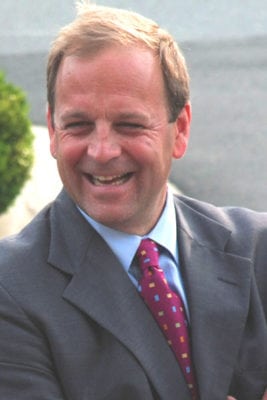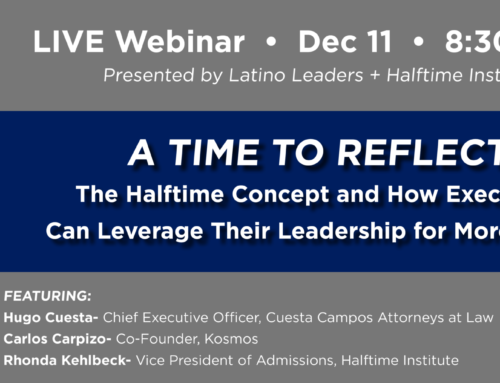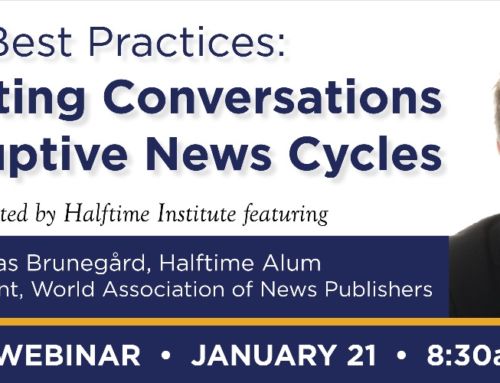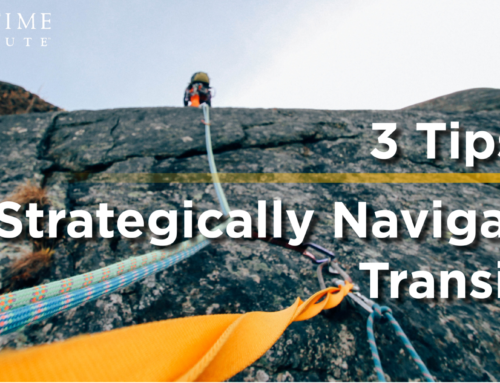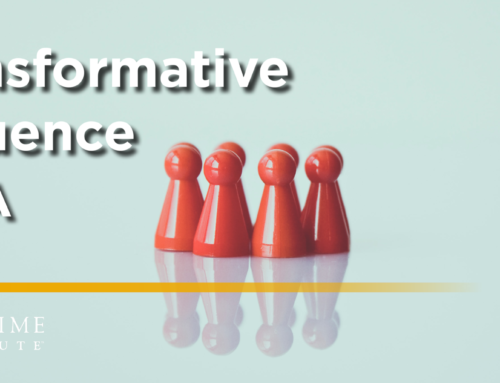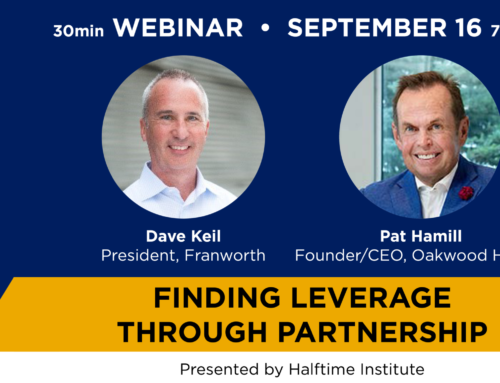Fred Clark enjoyed professional success in his career as lawyer and founding partner of a D.C. based government relations firm. Although his exposure to the idea of “Halftime” started years before, in 2013 Fred made the decision to more fully explore a growing sense of spiritual discontent and the possibility God might have something more for him to experience beyond his professional titles and accomplishments.
After Fred transitioned from the focused and more structured part of his professional life, he spent the next 18 months traveling around the world, fixing up a second home and golfing. Fred noted that his wife Rika was clearer about her second half path and got them both involved as first year Fellows in the CS Lewis Institute. While Rika continued in the second year Fellows program she found joy and fulfillment mentoring younger women. Fred went back to playing golf. The whole time Fred was sending out dozens of Halftime books to friends around the country. The irony of his encouraging others to boldly find their “second half” calling while he was working on his handicap, eventually captured his heart.
In 2015, Fred joined the Halftime Institute Fellows Program. His journey from “success to significance to surrender” and finally to joining the Fellows program took longer than he had estimated. However, once he began to take action, his choices not only transformed his life, but also brought four others in his network into the Halftime Institute’s Fellows Program to find the community, process and structure to help figure things out.
We sat down with Fred to ask him how this ‘ripple effect’ occurred and the impact Halftime has had on his life as well as his friends. Here is what he had to say:
HT: What caused you to originally connect in a serious way with the Halftime process/program?
FC: I first learned about the “Halftime” concept in 2009 when Don Wright, my accountability partner, and I read Bob Buford’s book Finishing Well together. When I first began to transition out of full-time work in 2013, Don and his wife Kathy began repeatedly encouraging me to enroll in the Halftime Institute. It took almost 2 years, but I finally signed up for the Fellows program as part of the June 2015 cohort.
HT: What parts of the experience met your expectations and what things exceeded your expectations?
FC: Several things exceeded my expectations. First of all, my most important personal growth came through recognizing, confronting, and working through several personal issues in my relationship with God and with my family and close friends. This came as an unexpected but increasingly welcome surprise. I had assumed and expected the program to be more about “over the horizon issues” related to my “career” or “calling” in my second half. It was about those things but it also helped me work through “close-in” issues with my faith, family, and friends.
Several other areas that exceeded my expectations….
The reading, in particular, Love Does by Bob Goff, and The Gift of Being Yourself by David Benner. The former inspired me to participate in 3 mission trips to 4 countries in just over 6 weeks. The latter led me to confront the issue of pride in my own heart, and how it has been interfering with my service to the Lord.
The power of writing down goals on a one year “Road Map” exceeded my expectations. I wasn’t necessarily excited about the Road Map process at the kick off event, but it was worth it.
I was initially hesitant about participating in the “Thriving Family” event, but in retrospect it exceeded my expectations, and has opened improved lines of communications between me and my wife.
I also very much enjoyed the Jim Collins Finishing Great event. I had pretty high expectations for that event, which were met.
HT: You told Fred Baerenz about the Fellows Program and that started a domino effect with 3 others enrolling. What prompted you to tell Fred about the program?
FC: I tell a lot of friends in my peer group about the natural aspiration human beings long for in making the transition from success to significance in mid-life and beyond. I have given away at least 20 copies of Halftime to these friends and encouraged them to read it. Fred B. was more interested in and receptive to this conversation than many folks. He was also interested in the Fellows Program and how it might help him in his own personal success-to-significance journey.
HT: Did Fred B immediately engage with Halftime and agree to join the Program? If not, what was going through his mind?
FC: My impression was that Fred was impressed with and interested in the Fellows Program from when he first learned about it. Like many Halftimers who are still engaged in their careers on a full-time basis, Fred’s major concern seemed to be about whether (and if so when) he could manage meaningful participation in the Fellows Program while continuing to work full time.
HT: Fred’s question about whether or not he would be able to participate in the Fellows Program while working full time is one that we’ve heard before. How did you help Fred work through that concern?
Fred and I played a round of golf and spent the afternoon talking about the virtues and challenges of the program. I believe that that conversation allayed his concerns about managing the program, his career, and personal life simultaneously.
As Fred Clark told us in our interview, Fred B was already searching for his own success-to-significance journey. It only took an honest conversation with a good friend over a round of golf to help him see that the Fellows Program was the right decision. As a result, Fred B has helped three other friends sign up for their own success-to-significance journeys through the Fellows Program.
Can you think of any friends in your circle of influence who are still searching? If so, it might be a conversation worth bringing up during your next Tee Time. You never know how many lives you might impact by starting a conversation with just one.

